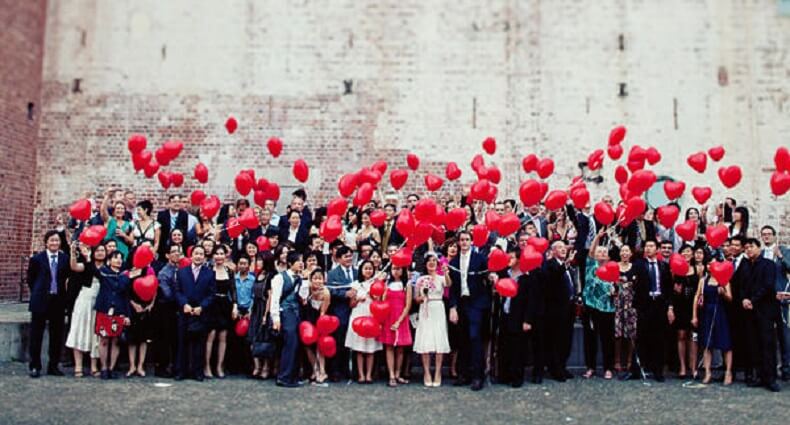We Are Called to be Shepherds, Not Ourselves but by God
We Are Called to be Shepherds, not Ourselves but by God
it came in Psalm 132,1 as follows: “Behold, how good and how pleasant it is for brothers to dwell together!” I believe that you have witnessed the truth of these words during the days you spent in Rome, during which you lived the experience of brotherhood… We are called to be shepherds not by ourselves but by the Lord.
Fraternal Work
Fraternity is strengthened by friendship, through acquaintance and the passing of time together, but which is given the basis by the bonds of the sacraments of communion in the Synod of Bishops and with the Bishop of Rome.
May this truth, that is, the “one body” that you constitute in your daily work, lead you to ask: How do we live the spirit of fellowship and cooperation in the episcopate? How can we be builders of communion and unity in the Church entrusted to us by the Lord? A bishop is a man of communion, a man of unity: “a visible principle and foundation of unity.” (Vat. II, Lumen Gentium, 23).
Dear brother bishops, I greet you one by one, Latin and Oriental bishops: you demonstrate the great richness and diversity of the Church! I thank Cardinal Marc Ole, Dean of the Synod of Bishops, for the greetings he addressed to me on your behalf, and for organizing these days of pilgrimage to the tomb of St.
Peter in order to strengthen communion, pray, and reflect on your mission. I also greet Cardinal Leonardo Sandri, Prefect of the Congregation for the Oriental Churches, Cardinal Luis Antonio Tagli, Archbishop of Manila, and Archbishop Lorenzo Baldiseri, who tirelessly organizes such meetings.
“Shepherd the flock of God which is among you overseers, not under compulsion, but voluntarily, and not with dishonorable gain, but actively. Not as lords over shares, but becoming examples to the flock” (1 Peter 5:2).
May these words of Saint Peter be engraved in your hearts! We are called to be shepherds, not by ourselves, but by the Lord, and not to serve ourselves, but to serve the flock entrusted to us, to serve Him to the extent that we sacrifice our lives for Him as Christ, the Good Shepherd. (See John 10,11).
What does it mean to shepherd the flock, “to have the usual and daily care of your sheep” (Vat. II, Lumen Pentium, 27)? Three brief ideas. To shepherd means to receive the sheep, walk with them, and stay with them. Reception, walk, stay.

1- Reception
Let your heart be big to receive all the men and women you meet daily and who you go to look for in the parish and the community that you receive. From now on, ask yourselves: How will those who knock on my door find it? If they find it open, through your kindness and presence, they will experience the brotherhood of God and will understand that the Church is a good mother who always receives and loves.
2- Walking with the Herd
Reception and walk. Welcome everyone to walk with everyone. The bishop walks with his flock in his midst. This means walking with believers and with all those who will turn to you, sharing their joys and their hopes, their hardships, and their sufferings, as brothers, friends, and even more than parents. Who has the ability to listen, and understand, help, and direct? Walking together requires love, and our service is a service of love, as Saint Augustine says.
(a) On this journey, I would like to remind you, with the affection of your priests, that your priests are your first cousins. The priest is the first relative of the bishop – love your neighbor, and this is the first relative. An essential collaborator with the one who seeks advice and help, and he must be given care as caring for a father, a brother, and a friend.
Among your primary duties, there is the spiritual care of the Synod of Bishops, but do not forget the human needs of each of them, especially at the most sensitive and important moments in their mission and life. The time we spend with priests is never in vain! Receive them when they ask. Don’t leave a phone call without answering it.
When I preached among the priests, I heard them say—I don’t know if it is true but—“I called the bishop, and he didn’t have time to see me. “But please, I will call you. Answer by saying, “I do not have time today to receive you, but we will try to fix another date.” Please let him feel that his father answers him. It would be a good decision.
(b) Then the presence in the diocese: In the homily at the Chrism Mass, I said that shepherds should know “the smell of their sheep.” Be so, be present among your people in the example of Jesus, the Good Shepherd. Your presence is not secondary, but indispensable. The audience! The people demand it, he wants to see his bishop walking with him, and be near him. He needs it to live and breathe!
Don’t shut up! Go among your faithful, to the outskirts of your parishes, and to all the “existential outskirts” where suffering, loneliness, and human degradation lie. Pastoral presence means walking with the people of God: walking in the front, and showing the way: walking in the middle, to promote unity.
Rather, it is New to God
Walking backward to leave no one behind, but more to find new paths toward God. The bishop who lives in the midst of the faithful has both ears open to hear what the Spirit says to the churches (Revelation 2, 7), and the voice of the sheep. This includes diocesan organizations that have the task of advising the bishop, by promoting a just and constructive dialogue.
We cannot imagine a bishop not having these diocesan organizations: priestly council, councilors, parish council, and the council of economic affairs. This means that the bishop is with his people. This pastoral presence allows you to familiarize yourself in-depth with the culture, customs, and traditions of your surroundings and the wealth of holiness that it possesses. Diving into the herd. We are called to be shepherds, not by ourselves but by the Lord.
(c) Here I would like to add: The method of serving the herd must be humble, as well as austerity and basic services. Please, we shepherds do not have to have a “prince’s psyche.” Please, men with ambition, married to the Church, waiting for a richer and more beautiful one. We Are Called to Be Shepherds
This is infuriating! If someone comes to confess and says, “I am married, I live with my wife, but I always look at a woman more beautiful than her: is this a sin, Father?” It came in the Bible: It is the sin of adultery. Is there “spiritual adultery?” I don’t know, think about it.
You should not wait for another one that is more beautiful and important, richer. Beware not to fall into the spirit of accessibility! It is a pest! It is not only in the world but in the tangible testimony of our lives in which we teach our people.
A declaration of faith requires that we live our lives according to what we know. Mission and life are inseparable (cf. Jean-Paul II, Pastores Gregis, 31). This is a question we must ask ourselves daily: Am I living according to what I know?
3- Reception and Walk
And the third and final element: staying with the herd. I’m referring to settling in, “remaining” in the diocese, staying in “this” diocese as I said, without looking for changes or upgrades. If we don’t stay in the diocese, we can’t really, as shepherds know the flock by walking in front of it, in the middle or behind it, and taking care of it through education, sacraments, and life witness. In this sense, Trent’s complex is very contemporary: the residence.
Our age allows us to travel and move easily from one place to another. It is an age where relationships are fast becoming. It is the age of the Internet. But the old residence law is not out of the past! It is even necessary for good pastoralism. (Directoire Apostolorum Successores, 161).
Of course, the bishop can be absent from the diocese, but for a limited time. If you see accommodation has theological roots! You are the spouses of your group, deeply connected to it! Please stay with your people. Stay…stay…don’t be the “airport bishops” scandal!
Be welcoming bishops, walking with your people in affection, mercy, fatherly firmness, humility, and being able to see your limits and have a sense of humor. It is a grace that we bishops must ask: Lord, give me a sense of humor. Find a way to laugh at yourself and then at things. And stay with your flock.
Conclusion
Brothers, on returning to your dioceses, convey my greetings to all, especially priests, consecrated men and women, seminarians, believers, and those who most need to draw near to God. The presence, as Cardinal Ouellet said, of two Syrian bishops also prompts us once again to ask God together for the blessing of peace.
Peace to Syria, peace to the Middle East, peace to the world! Please, do not forget to pray for me, and I will pray for you. For each one of you and each community, I give you my Apostolic Blessing with all my heart.
The pope’s speech before the bishops who received them on Thursday 19 September at the Apostolic Palace in the Vatican. (Google Translate)
More Spiritual Reflections
- The Way Back to God Through Repentance and Sincere Regret
- I Place My Trust in You Alone, My Lord Jesus Christ
- What do People learn from Corona & what Secrets are Hidden?
- What Resists Faith from the Challenges of this Material Age
Did You Wake Up from Sleep? Smile and thank God







